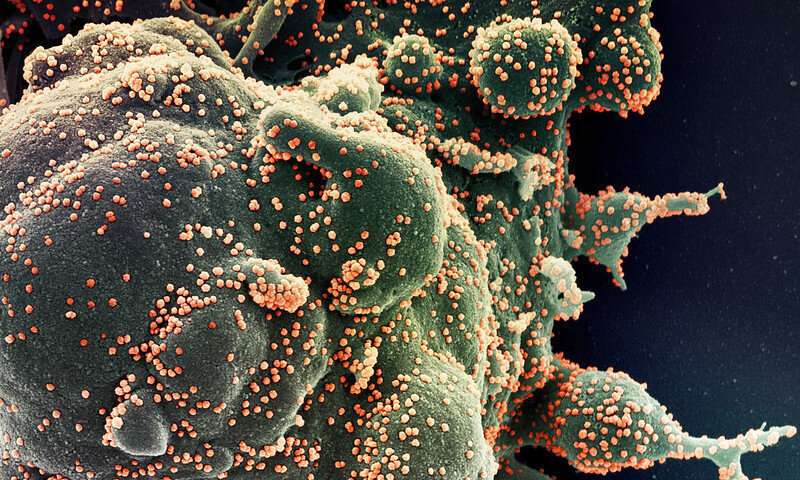Results of ACTIV-3 trial published: Experimental monoclonal antibody not efficacious in Phase 3 trial

Preliminary results of a phase 3, randomized, placebo-controlled clinical trial testing the investigative monoclonal antibody LY-CoV555 in hospitalized COVID-19 patients were published today in the New England Journal of Medicine. The antibody did not provide clinical benefit compared to placebo. The trial, which had been halted to new enrollment in late October following a recommendation by the independent Data and Safety Monitoring Board (DSMB), is part of the Accelerating COVID-19 Therapeutic Interventions and Vaccines (ACTIV) program. The trial is sponsored by the National Institute of Allergy and Infectious Diseases (NIAID), part of the National Institutes of Health.
The ACTIV-3 trial used a master protocol designed to allow study of multiple investigational agents compared to placebo in adults hospitalized with COVID-19. Participants in ACTIV-3 are randomly assigned to receive either an experimental agent or a matched placebo. All participants also receive standard of care for patients hospitalized with COVID-19, including the antiviral remdesivir. Five days after enrollment, participants’ clinical status is assessed based on an ordinal scale. If the investigational agent appears to be safe and effective based on an evaluation of the first 300 participants (stage 1), an additional 700 participants are randomized and followed for 90 days to assess sustained recovery, defined as being discharged, alive and home for 14 days (stage 2). Patients with end-stage organ failure are not enrolled in stage 1, but such patients are allowed to enroll if the trial proceeds to stage 2.
The first agent evaluated in ACTIV-3 was LY-CoV555. The monoclonal antibody was discovered by AbCellera Biologics, based in Vancouver, in collaboration with NIAID’s Vaccine Research Center. Subsequently, it was developed and manufactured by Indianapolis-based Lilly Research Laboratories, Eli Lilly and Company, in partnership with AbCellera.
The trial was closed to new enrollees on October 26, after the DSMB reviewed data from stage 1 of the trial and recommended that no further participants be randomized to receive LY-CoV555 and that the investigators be unblinded to the data. This recommendation was based on a low likelihood that the intervention would be of clinical value in this population of hospitalized patients without end-stage organ failure. Enrollment in the LY-CoV555 sub-study closed with 326 total participants, 314 of whom were randomized to receive either LY-CoV555 (163 participants) or placebo (151 participants). After five days, 50% of LY-CoV555 recipients and 54% of placebo recipients were in one of the two most favorable outcome categories. The investigators concluded that LY-CoV555 did not accelerate clinical improvement compared to placebo at day 5 using the ordinal scale among hospitalized COVID-19 patients without end-stage organ failure. Likewise, there was no difference in either time to hospital discharge or the primary outcome of sustained recovery, back at home for 14 days, among recipients of LY-CoV555 compared to placebo.
Although LY-CoV555 did not perform better than placebo in the hospitalized COVID-19 patients studied in this trial, this same investigational monoclonal antibody was granted an Emergency Use Authorization (EUA) by the U.S. Food and Drug Administration in November. The EUA authorized use of LY-CoV555 in non-hospitalized adolescents and adults with mild to moderate COVID-19 symptoms who are at elevated risk of progressing to severe COVID-19 disease.
Source: Read Full Article
